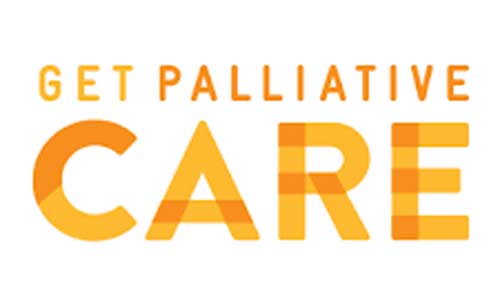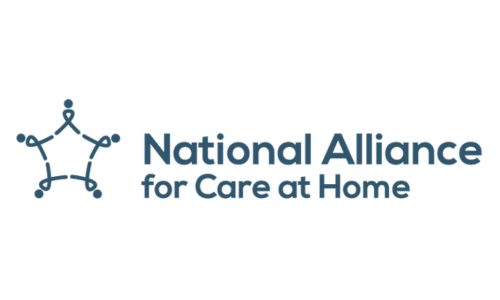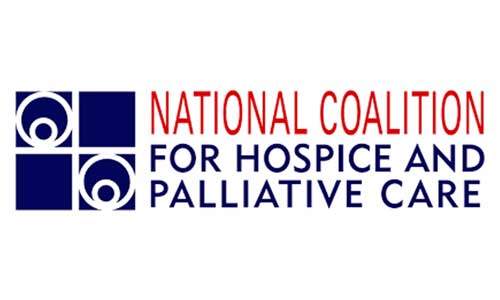I had the opportunity to start a palliative care unit for cancer patients. I decided that we should not wait until someone was in the last weeks of life to apply all of the supports of hospice, so we focused on physical rehabilitation, pain and symptom control, and psychosocial support from the time of diagnosis.
Patricia Ganz, MD, Recipient of the 2008 ASCO/American Cancer Society Award
Palliative care at a glance
Palliative care may be very helpful if you are suffering with symptoms or side effects. It can also help if your basic needs for care—physical, social, or emotional—are not being met. In fact, clinical practice guidelines on palliative care state that people with cancer with high symptom burden and/or unmet physical or psychosocialrelating to both psychological factors and the surrounding social environment, and especially their impact on physical and mental wellness and ability to function needs should receive palliative care services. Palliative care should be offered at any stage of disease. They further state that anyone with advanced cancer should receive palliative care. Health professionals can also provide palliative support to family members and friends who are providing care for a person with any stage of cancer at home or in another place outside a health facility.
Palliative care can be provided by your oncology team or by specialists in palliative care. You can ask your medical team for a referral, or you can search directories of specialists to find a professional.
On this page
What is palliative care?
Palliative care, also called supportive care, is a specialized field of medical care. It focuses on providing relief from the symptoms and stress of a serious illness.1Get Palliative Care. What Is Palliative Care? Center to Advance Palliative Care.Viewed March 9, 2018.
For people with cancer, palliative care can be an important part of care. It can be added along with treatments to slow, stop, or cure cancer. Palliative care is typically provided by a team of professionals working to improve the quality of your life. Care may involve support for your physical, emotional, social, and spiritual needs.2What Is Palliative Care? American Cancer Society. Viewed June 7, 2024.
Palliative care is not the same as hospice care. Hospice care is only one type of palliative care. While hospice care is usually engaged when death becomes imminent, you may start palliative care soon after learning you have cancer. Palliative care can continue throughout treatment and recovery.3What Is Palliative Care? American Cancer Society. Viewed June 7, 2024.
Palliative care also involves advance care planning—helping you think about, plan, and communicate how you’d like to be cared for should you not be able to speak for yourself.
Support for caregivers and family members
Palliative services support caregivers and family members in addition to the person with cancer. People who are supporting someone with a cancer diagnosis can experience stress, anxiety, depression, and frustration. Palliative care can help caregivers balance caregiving with other tasks. Caregivers can learn ways to cope with changes to your life and your family and improve your quality of life.4What Is Palliative Care? American Cancer Society. Viewed June 7, 2024; American Cancer Society. Who Should Get Palliative Care and Why? May 10, 2019. Viewed August 5, 2021; Mulcahy N. Palliative care bonus: families feel better too. Medscape Medical News. May 19. 2016. Viewed June 5, 2016; Fuerst ML. Early palliative care improves outcomes for family caregivers. Oncology Times. 2016 Jul 10th;38(13): 13.
What can I expect from palliative care?
Palliative care consultations provide these services:5Ferrell BR, Temel JS et al. Integration of palliative care into standard oncology care: American Society of Clinical Oncology clinical practice guideline update. Journal of Clinical Oncology. 2017 Jan;35(1):96-112.
Build relationships and rapport with you and your caregivers
Help you manage symptoms:
- Pain
- Shortness of breath
- Feeling tired
- Trouble sleeping
- Sleeping too much
- Changes in our mood
- Loss of appetite
- Nausea
- Constipation
Explore your understanding and educate you about your illness and prognosis
Clarify your treatment goals
Assess and support your coping needs, such as by providing dignity therapypsychotherapy to relieve psychological and existential distress in patients at the end of life6Martínez M, Arantzamendi M et al. ‘Dignity therapy’, a promising intervention in palliative care: a comprehensive systematic literature review. Palliative Medicine. 2017 Jun;31(6):492-509.
Assist with medical decision making and advance care planning
Coordinate with other care professionals and provide referrals as needed
Palliative care teams can also assist with issues related to finances, work, and insurance. They can help fill out advance directives and other forms and support a transition to hospice care if needed.7American Cancer Society. Who Should Get Palliative Care and Why? May 10, 2019. Viewed August 5, 2021.
CancerChoices advisor, hospice and palliative care physician and author BJ Miller, MD, discusses palliative care in the context of our post-COVID-19 world.
Play videoCancer Help Program alumna Suz Mondello discusses her experience with palliative care and hospice care, including choosing care, insurance coverage, and misconceptions she had about both these kinds of care.
Play videoWhy palliative care?
The benefits of palliative care are many:8Zhao XX, Cui M, Geng YH, Yang YL. A systematic review and meta-analysis of randomized controlled trials of palliative care for pain among Chinese adults with cancer. BMC Palliative Care. 2019 Aug 8;18(1):69; Kassianos AP, Ioannou M, Koutsantoni M, Charalambous H. The impact of specialized palliative care on cancer patients’ health-related quality of life: a systematic review and meta-analysis. Supportive Care in Cancer. 2018 Jan;26(1):61-79; Bakitas M, Lyons KD et al. Effects of a palliative care intervention on clinical outcomes in patients with advanced cancer: the Project ENABLE II randomized controlled trial. JAMA. 2009 Aug 19;302(7):741-9; Temel JS, Greer JA et al. Longitudinal perceptions of prognosis and goals of therapy in patients with metastatic non-small-cell lung cancer: results of a randomized study of early palliative care. Journal of Clinical Oncology. 2011 Jun 10;29(17):2319-26; Temel JS, Greer JA et al. Early palliative care for patients with metastatic non-small-cell lung cancer. New England Journal of Medicine. 2010 Aug 19;363(8):733-42.
- Better relationships among the healthcare team, patients, and family members
- Better symptom management
- Improved quality of life and better emotional health
- Clarification of treatment goals
Starting palliative care early in your treatment—rather than delaying it—may provide better control of symptoms and perhaps even a longer life.9Jacobs JM, Greer J et al. The positive effects of early integrated palliative care on patient coping strategies, quality of life, and depression. Journal of Clinical Oncology. 2017 Nov;35(31_suppl):92-92; Nottelmann L, Groenvold M, Petersen MA, Vejlgaard T, Jensen LH. A single-center randomized clinical trial of palliative rehabilitation versus standard care alone in patients with newly diagnosed non-resectable cancer. Journal of Clinical Oncology. 2018;36:34_suppl:75-75; Temel JS, Greer JA et al. Early palliative care for patients with metastatic non-small-cell lung cancer. New England Journal of Medicine. 2010 Aug 19;363(8):733-42; Brumley R, Enguidanos S et al. Increased satisfaction with care and lower costs: results of a randomized trial of in-home palliative care. Journal of the American Geriatric Society. 2007 Jul;55(7):993-1000.
If you have uncomfortable or painful symptoms that are not adequately managed by your oncology team, consider asking for a palliative care referral. Your healthcare team or a social worker can also help you find palliative care resources for caregivers and family members.
Palliative care is also linked to lower medical costs for people with cancer. This is due in part to lower use of emergency, acute, and critical care services when a palliative care team is involved.
- Lower cost of medical care when a patient is seen by a palliative care consultation team within three days of hospital admission11May P, Normand C et al. Economics of palliative care for hospitalized adults with serious illness: a meta-analysis. JAMA Internal Medicine. 2018 Jun 1;178(6):820-829.
- Reduced time in intensive care during hospitalization and lower likelihood of visiting the emergency room or being readmitted to the hospital after discharge12American Cancer Society. Who Should Get Palliative Care and Why? May 10, 2019. Viewed August 5, 2021.
- Fewer unnecessary hospital admissions and use of health services with daily delivery of palliative care13World Health Organization. Fact Sheet: Palliative Care. August 2020. Viewed August 4, 2021.
- Fewer intensive care admissions (ICU) on hospital readmission and lower 6-month net cost savings of $4,855 per patient among people with life-limiting illnesses (not specific to cancer) receiving consultative, interdisciplinary, palliative care compared to usual hospital care in a large RCTrandomized controlled trial, a study design in which people are randomly assigned to either an experimental group or a control group to compare the outcomes from different treatments; an RCT is considered a strong design for determining a therapy’s effects14Gade G, Venohr I et al. Impact of an inpatient palliative care team: a randomized control trial. Journal of Palliative Medicine. 2008 Mar;11(2):180-90.
- Higher satisfaction with care at 1 month and 90 days (but not at 60 days), fewer emergency department visits, and fewer hospital days, resulting in significantly lower costs of care, among homebound, terminally ill people (not specific to cancer) receiving in-home palliative care plus usual care delivered by an interdisciplinary team providing pain and symptom relief, patient and family education and training, and an array of medical and social support services compared to usual care in a mid-sized RCT15Brumley R, Enguidanos S et al. Increased satisfaction with care and lower costs: results of a randomized trial of in-home palliative care. Journal of the American Geriatric Society. 2007 Jul;55(7):993-1000.
Who provides palliative care?
Your doctors and nurses may provide some palliative care, helping you manage symptoms such as nausea or pain. But they may also refer you to a team of palliative care specialists.
Palliative care teams typically include a palliative care doctor (who may be board-certified in hospice and palliative medicine), palliative care nurse, social worker, dietitian, and patient navigator. Sometimes a person with a spiritual role, such as a pastoral counselor or chaplain, is part of the team. Having many types of professionals working together creates a network of support for your symptoms and physical needs. This team may also help address family distress, insurance issues, or other concerns you may have about your cancer or treatment.16American Cancer Society. How and Where is Palliative Care Provided and How Is It Paid For? May 10, 2019. Viewed August 5, 2021.
Many hospitals and oncology clinics offer palliative care services. Services may also be available in outpatient palliative care clinics, nursing homes, or in your home.17National Institute on Aging. What Are Palliative Care and Hospice Care? National Institutes of Health. Viewed August 4, 2021.
Directories of palliative care professionals
Does insurance cover palliative care?
In the United States, palliative care physician and nurse services may be covered by Medicare, Medicaid, and the Department of Veterans Affairs. Many insurers and healthcare plans may also cover palliative care as part of chronic care or long-term care coverage. Sometimes palliative care is included in the hospice care part of coverage, although no comprehensive palliative care benefit is available.18CaringInfo. What is Palliative Care? National Hospice and Palliative Care Organization. Viewed August 10, 2021.
Check with your insurance company to see what is covered. Coverage may differ depending on where you receive care and on the types of health professionals who make up your palliative care team. Other limits may also apply, such as the types of serious illnesses covered.19American Cancer Society. How and Where is Palliative Care Provided and How Is It Paid For? May 10, 2019. Viewed August 5, 2021.
Expert guidance on palliative care with cancer
Clinical practice guidelines
These 2017 clinical practice guidelines on palliative care make these recommendations:
- People with advanced cancer should receive palliative care upon diagnosis and along with active cancer treatment at any stage of their disease. The standards support integrating palliative care into standard oncology care within 8 weeks of diagnosis of advanced cancer.
- For patients with cancer with high symptom burden and/or unmet physical or psychosocial needs, outpatient cancer care programs should provide and use palliative care clinicians to deliver palliative care services to complement other care.
- Nurses, social workers, or other professionals may initiate caregiver-tailored palliative care support for family or friend caregivers providing care at home or outside a health facility to people with cancer at any stage.
Recommendations for specific symptoms and side effects are listed in handbooks.
Handbooks on further side effects and symptoms are available on our predecessor site, Beyond Conventional Cancer Therapies:
Expert commentary
CancerChoices Senior Clinical Consultant and palliative care consultant Laura Pole, RN, MSN, OCNS, writes of her experience with people with advanced pancreatic cancer.
I interviewed palliative care specialists Tom Smith, MD, and Patrick Coyne, MSN, at the VCU Thomas Palliative Care Service in Richmond, Virginia. They told of an ingenious palliative-care strategy they used in cooperation with one of the regional hospices.
Patients with pancreatic cancer having pain and/or nausea from their cancer were referred to the Thomas Palliative Care Service, who would arrange for a special procedure, called a neurolytic celiac plexus nerve block, to numb a bundle of nerves close to the pancreas. The patient then returned home and was admitted to hospice. The hospice and palliative care teams observed that many of those receiving the procedure not only had relief of nausea and pain, but also seemed to live longer than those who did not have this procedure. This survival benefit has been observed in research as well.20Staats PS, Hekmat H, Sauter P, Lillemoe K. The effects of alcohol celiac plexus block, pain, and mood on longevity in patients with unresectable pancreatic cancer: a double-blind, randomized, placebo-controlled study. Pain Medicine.2001 Mar;2(1):28-34.
In patients with advanced pancreatic cancer with whom I provide palliative care consultation, I suggest they discuss with their physician the possibility of preventing their symptoms from becoming severe by proactively having this procedure. I have observed similar benefits when these people have had this procedure.
Helpful links
Are you a health professional?
Helpful links for professionals
Journal article
In a conference presentation, Jasmine Hudnall, DO, discusses three studies on prognosis and end-of-life care decisions that are relevant to palliative care.
Play videoHealth professional comment
We invite health professionals to contribute expertise or send us questions.
"*" indicates required fields
References









